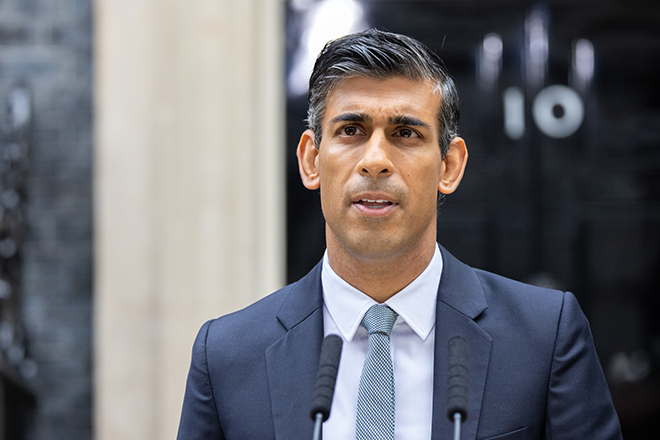UK Music Chief urges Rishi Sunak to introduce AI protection for creatives
Tom Kiehl has written to the UK PM insisting on the music industry’s concerns are highlighted at the summit this week

Ahead of the AI Safety Summit this week, UK Music Interim Chief Executive Tom Kiehl is urging Prime Minister Rishi Sunak to outline the music industry’s concerns around artificial intelligence (AI).
The global summit will run from November 1- 2 at Bletchley Park, Buckinghamshire with input from international governments, AI companies, civil society groups and research experts.
Voicing their concerns, Kiehl and UK Music suggest that AI could be a form of “music laundering,” with the potential for creatives to not receive compensation for their work.
Read this next: Six DJs respond to the government telling them to get new jobs
In a speech last week Rishi Sunak insisted that “the UK’s answer is not to rush to regulate”.
In his letter, Kiehl urges copyright protection on music and emphasises that AI firms consent to use artists' copyright-protected work.
The letter to the PM is outlined with two principles, consent and transparency at a domestic and international level.
On the first principle of consent, Kiehl wrote: “Machine learning involves numerous rights, including copyright, which in most countries are not subject to an exception that restricts creators and rightsholders’ abilities to exercise their rights.
Read this next: Human Artistry Campaign launch coalition for ethical use of AI with "creators in mind"
“As a general principle, the use of music during the ingestion process (in the past, present and future) should always require permission from the creator and the rightsholder."
He adds: “Failure to ensure this basic human right will jeopardise thousands of UK jobs and threaten the fragile talent pipeline on which the music industry relies to nurture the music professionals who are the envy of the world.”
He continues on the issue of transparency: “AI platform providers need to keep an auditable record of the music used to train the machine before the algorithm can generate new music. This is the only point in the process when these data points can be duly documented.
“Music generated by AI should be labelled as such to protect the consumer from confusion. Consumers need to be able to make an informed decision before acquiring goods or services."
Read this next: The rise of AI music: A force for good or a new low for artistic creativity?
Kiehl continues: “It is vital for consumers, artists, and commercial businesses alike for AI platform providers to operate in compliance with the transparency principle.”
UK Music will continue to hold talks with the Government and the Intellectual Property Office (IPO) around the impact of AI on the music industry.
Read Tom Kiehl's full letter to Rishi Sunak here.
Becky Buckle is Mixmag's Multimedia Editor, follow her on Twitter

Mixmag will use the information you provide to send you the Mixmag newsletter using Mailchimp as our marketing platform. You can change your mind at any time by clicking the unsubscribe link in the footer of any email you receive from us. By clicking sign me up you agree that we may process your information in accordance with our privacy policy. Learn more about Mailchimp's privacy practices here.

